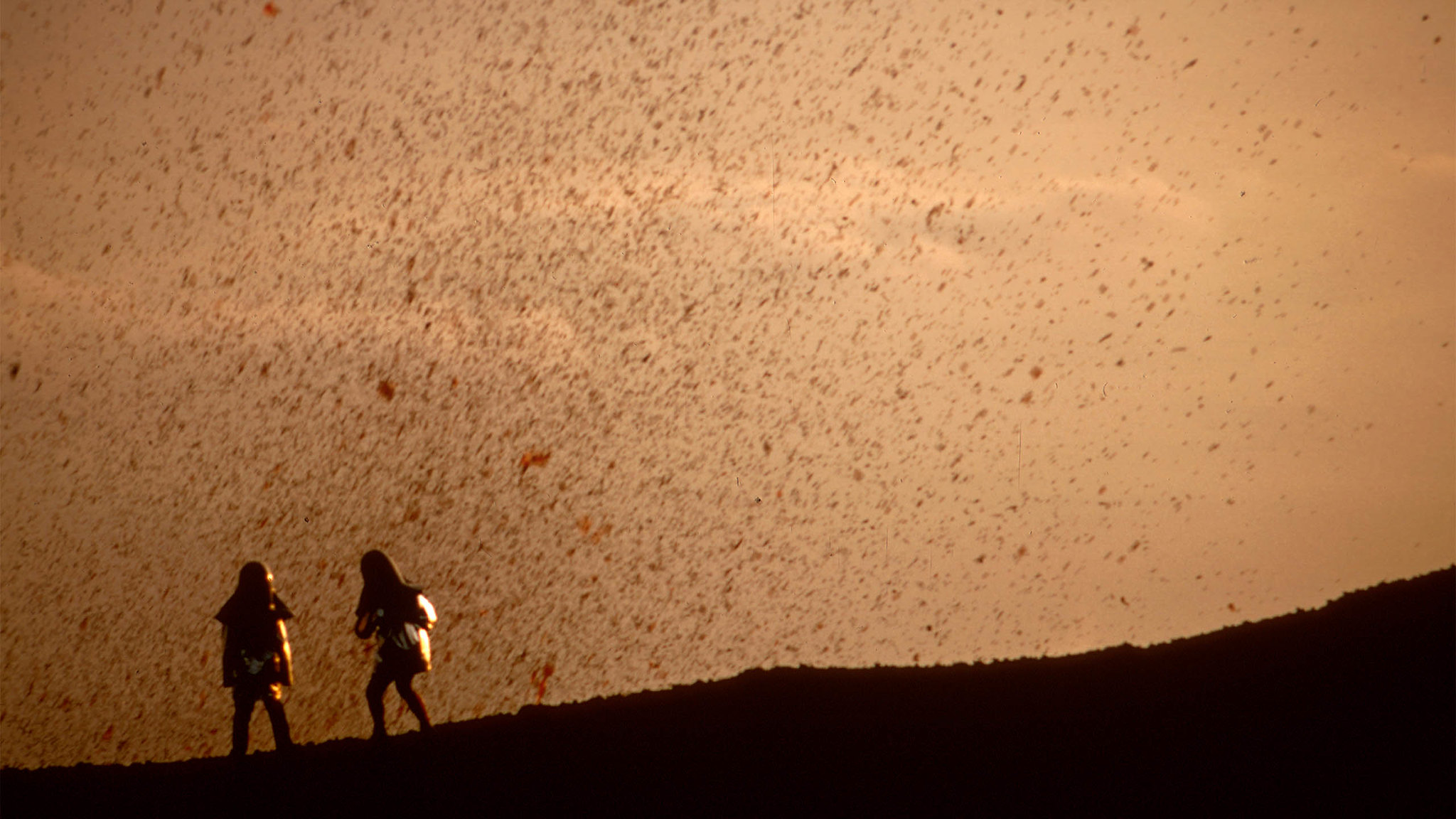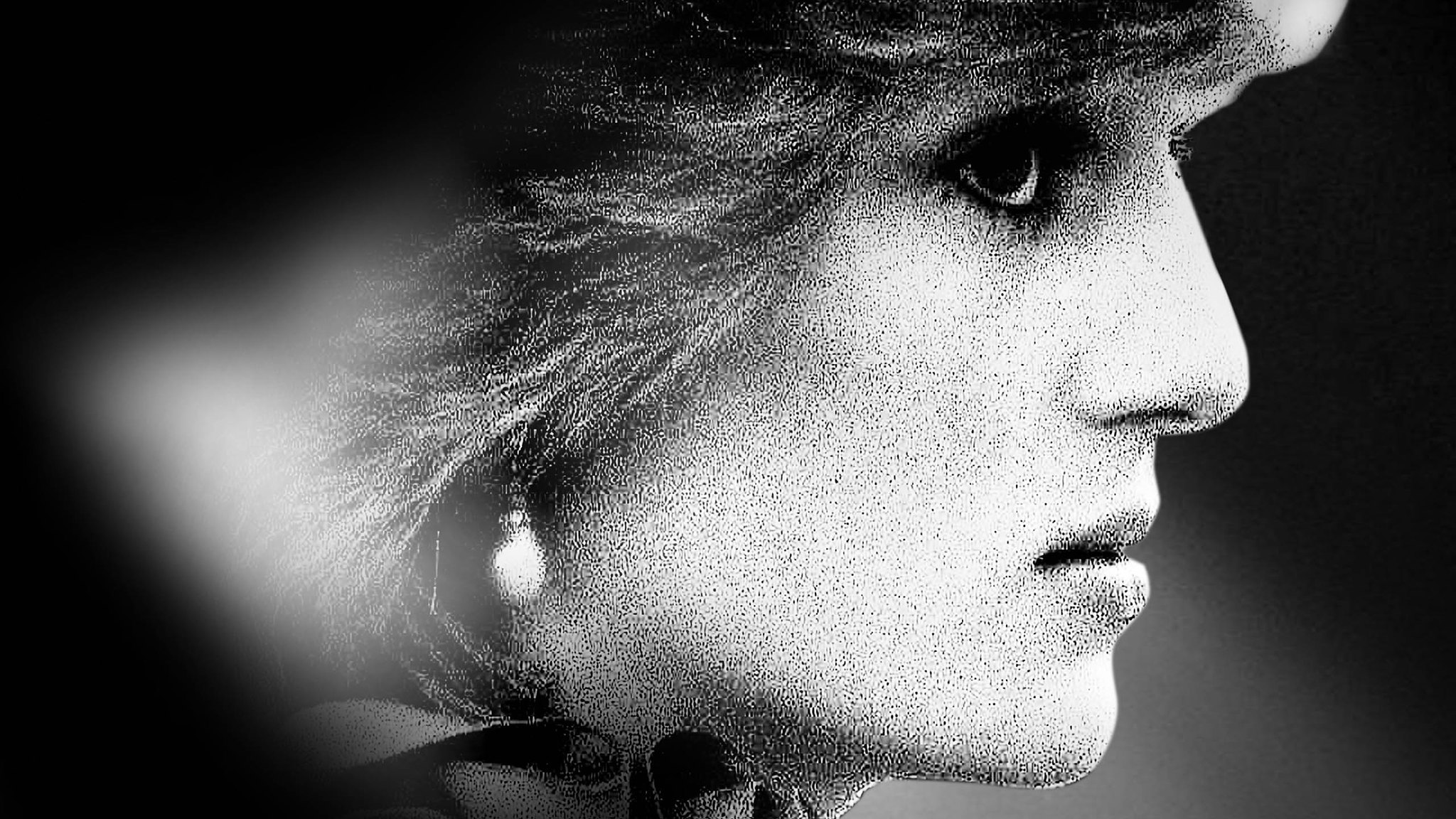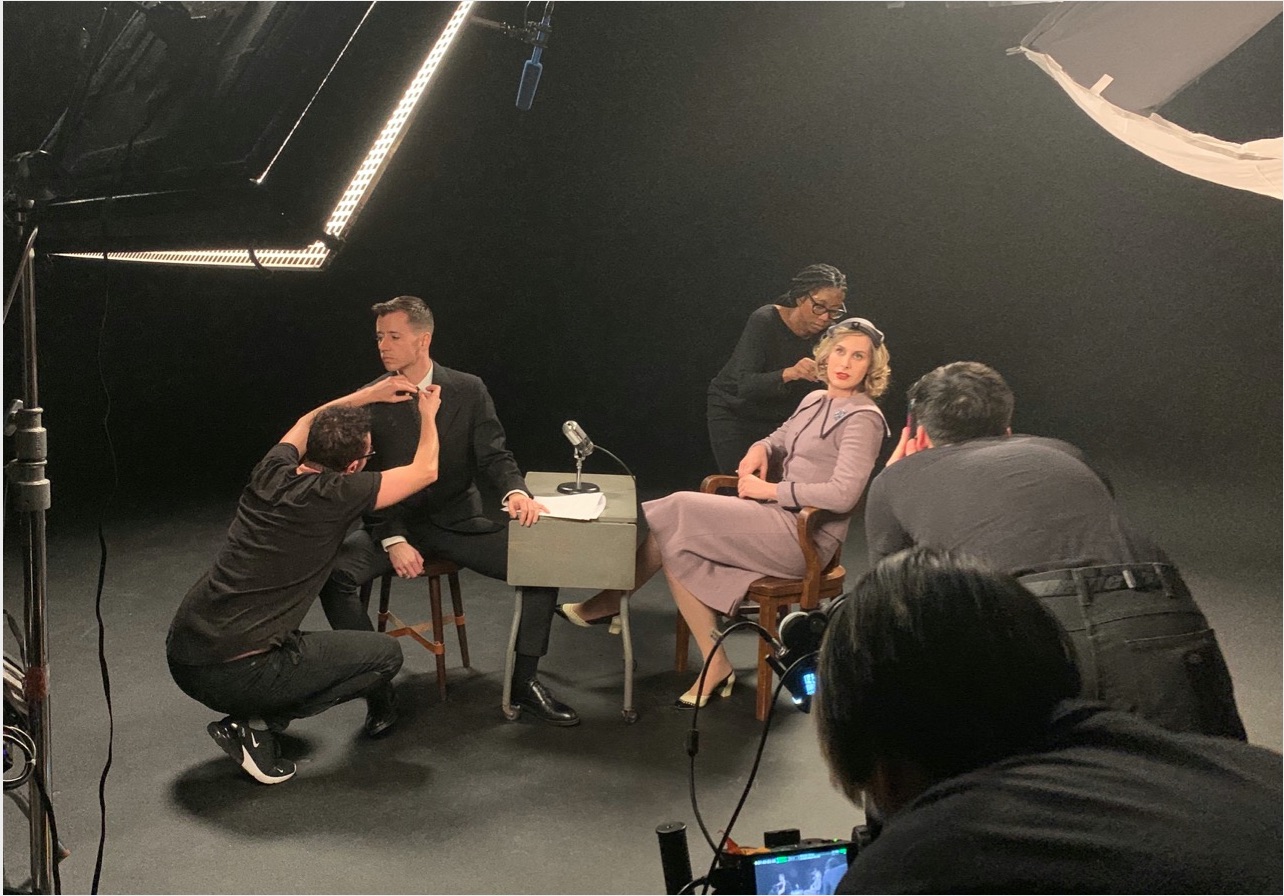Fire of Love
(USA, 93 min)
Dir. Sara Dosa
Programme: US Documentary Competition (World Premiere)
Over the last few years, we’ve been gifted by some remarkable archival documentaries that showcase the natural world. From Brett Morgen’s award-winning Jane to last year’s terrific take Becoming Cousteau by Liz Garbus, docs have surfaced extraordinary images of pioneering researchers. Sara Dosa’s Fire of Love, produced by Montrealer Ina Fichman, tracking the lives and careers of volcanologists Maurice and Katia Krafft, is perhaps the fieriest of them all.
Dosa’s film is part eulogy, part celebration, employing hours upon hours of footage and photographs that the Kraffts collected over decades. Their specialty was volcanoes, of course, and they eschewed many of the academic trappings and dove head on to field studies, travelling at a moment’s notice to the literal hotpots around the globe.
As Maurice trotted out an Arriflex film camera and Katia her long lenses and slide film, the two captured for rapt audiences the astonishing beauty and primal power of these fissures in the Earth’s crust. Celebrated in their native country in a way that France seems particularly great at – perhaps only David Attenborough is cherished in quite the same way in English language markets – it’s easy to see the corollary between the underwater travels of the much more famous Cousteau and the similarly red-touqued couple traipsing up a collapsing caldera as magma bombs fall in close proximity.
As simply an opportunity to gorge on this gorgeous restored footage, Fire of Love is a worthy experience, but Dosa’s film takes us much further. Interspersing interview footage with perceptive and slightly melancholic narration by Miranda July, the story of these individuals as scientists, as spouses, and as ever wandering explorers does complete justice to their tenacity and their singlemindedness. The film isn’t coy about their final moments, either. Dosa introduces that fate early in the film, but when the details are provided as Fire of Love unfolds, we understand not only the risks the Kraffts were willing to take, but also the vagaries of fate that meant their luck had quite obviously run out just as it probably should have many, many times before.
It can’t be overemphasised how majestic some of the footage is, too. While hardly diving deep into the science of volcanology, Fire of Love doesn’t shy away from diving into some of the more esoteric elements of the discipline. It’s clear that the Kraffts set out to be communicators above all, and when tens of thousands are killed because of ignored warnings, the film offers a reminder of both the limitations of their work’s effect, but also the impulse to educate others that continued to drive them until the end.
As characters, the Kraffts are engaging, quirky, and make for a wonderfully odd couple. They’re clearly synergistic in their cooperation but completely different in their temperament. The film’s slightly mystical presentation made between these two individuals who grew up only kilometers apart, destined to be together, should come across as twee. Instead, thanks to some lovely animation and a general sense of romantic playfulness, the romance merely adds to the narrative power of the film. It also showcases some of the storytelling elements that made the Kraffts’ own work so powerful to so many.
Where Goodall and Cousteau are international megastars for their time, the Kraffts’ fame was slightly more localized, and their films perhaps forgotten even where they had the most impact. Just as the scientists would analyse the stratification after eruption, Fire of Love has many wonderful moments that are investigated layer by layer. The paradox of the volcano – that the most cataclysmic events result in some of the most fertile soil in the world – can be shared in the story of the Kraffts. Their deaths put an end to their story telling, but here, years later, their work continues to shine and their experiences continue to inform generations after they have departed.
Fire of Love is indeed a love story, a love shared between a couple, their own love to demonstrate the forces of nature ripping itself apart or crashing together, with a fundamental love to tell stories and bring the world to those that would never have such a chance. Dosa’s film shares this spirit, continuing their legacy by vigorously spreading their love in illuminating ways just as they showcased in their footage of magma rolling down to the ocean. It’s a fulsome continuation of the remarkable legacy of these even more remarkable individuals.
Fire of Love premiered at the 2022 Sundance Film Festival.











